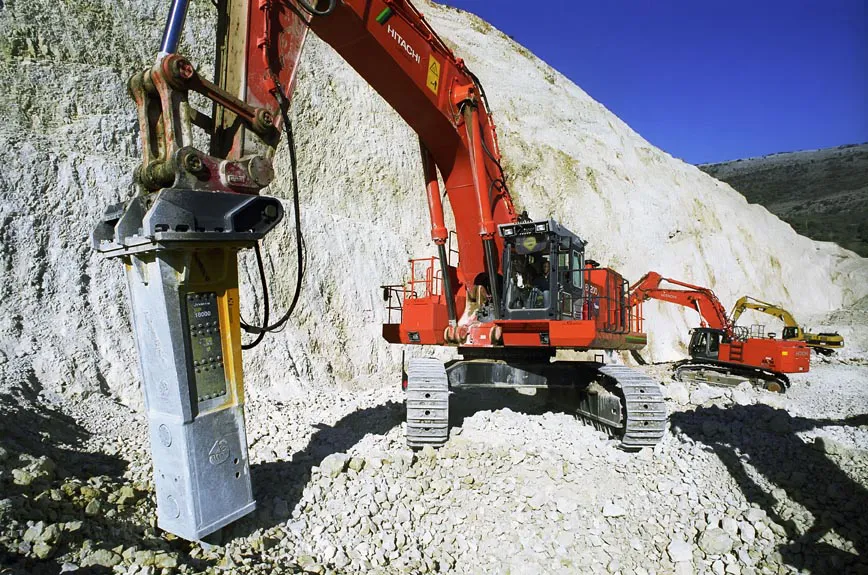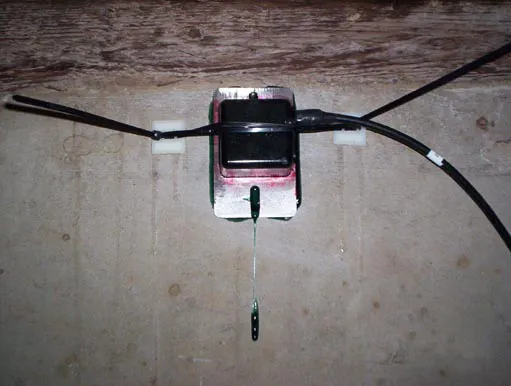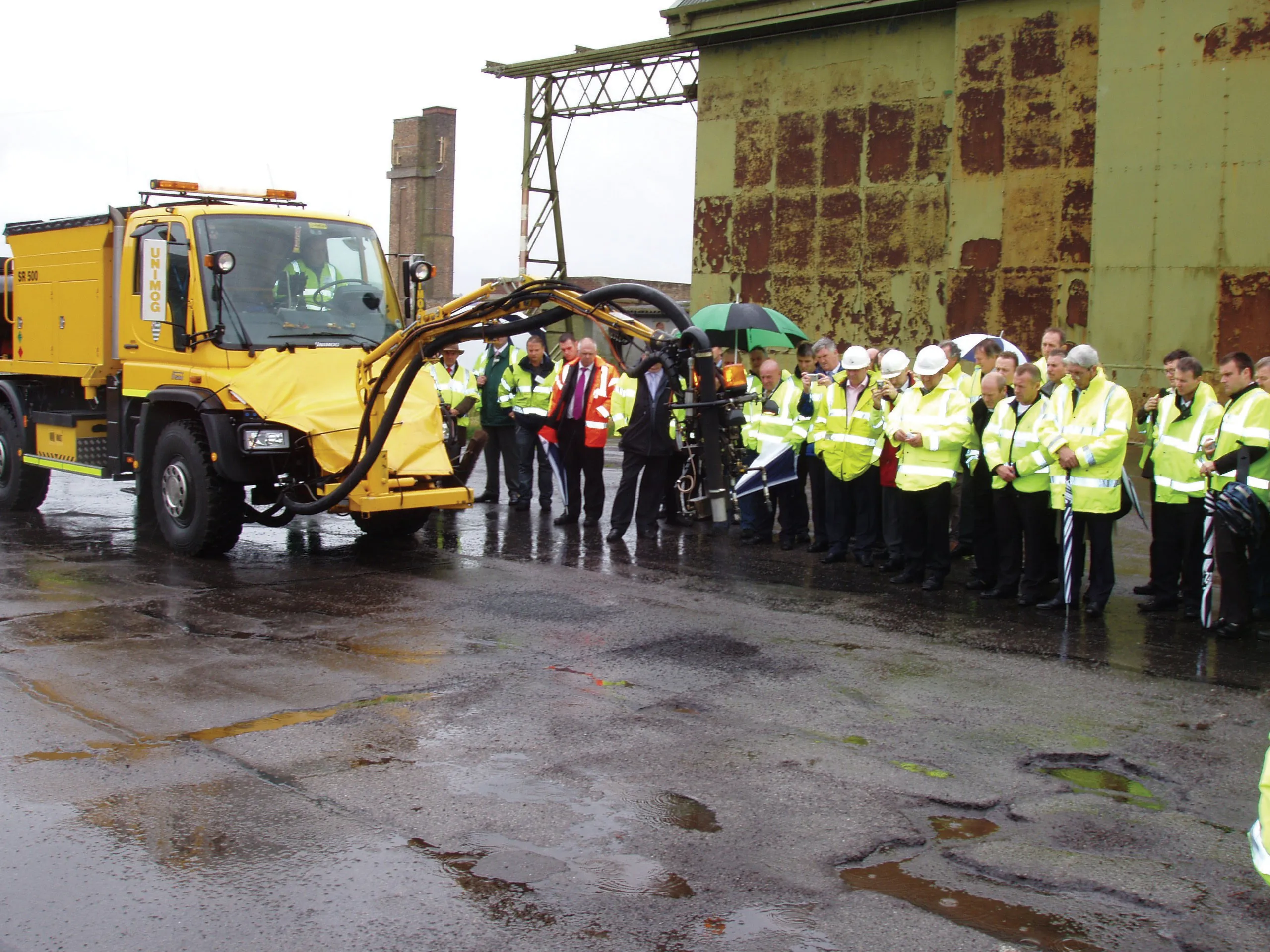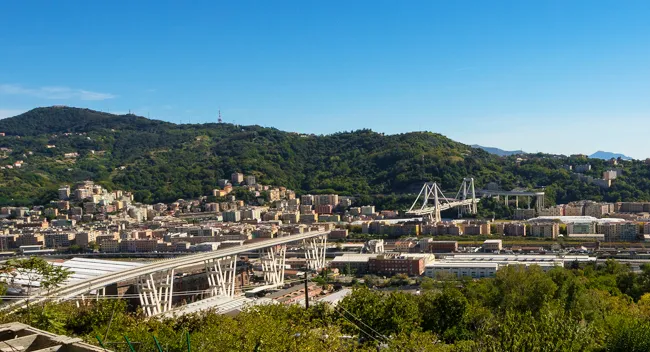Italian customer Marocca Group is using an Indeco HP18000 hydraulic breaker (the heaviest hydraulic breaker on the market at present) for primary demolition at a limestone quarry in Anagni, close to capital Rome. The 40ha quarry produces high grade limestone in 21 different sizes to meet an array of construction needs, and the bespoke fully automated crushing and screening plant is able to process over 500m³/hour of rock. By using the HP18000 in a primary winning application, Marocca Group has also been abl
July 16, 2012
Read time: 2 mins

RSSItalian customer Marocca Group is using an 237 Indeco HP18000 hydraulic breaker (the heaviest hydraulic breaker on the market at present) for primary demolition at a limestone quarry in Anagni, close to capital Rome.
The 40ha quarry produces high grade limestone in 21 different sizes to meet an array of construction needs, and the bespoke fully automated crushing and screening plant is able to process over 500m³/hour of rock.
By using the HP18000 in a primary winning application, Marocca Group has also been able to significantly reduce operating costs by minimising its use of explosives, which are costly and subject to strict regulations. Many quarry operators are keen to cut their reliance on blasting: this has been particularly apparent in Italy, where regulations have long been much tougher than in other European countries.
Comparative research carried out on rock produced from quarries using breakers for primary winning against blasted stone shows other benefits from using hydraulic hammers. Where breakers are used, the stone produced features less micro-cracking and is said to offer high performance in civil engineering applications as it is less likely to feature crack propagation.
The Marocca Group has been using Indeco breakers in its quarries for five years and in addition to the huge HP18000 it also has an HP2500, an HP7500 and an HP12000. Maintenance for its Indeco breakers is provided by Fratelli Alpassi, while for scheduled maintenance and periodic overhaul, the Bari plant also provides servicing.
The HP18000 is being used on a 120tonne233 Hitachi excavator fitted with a Lenhoff quick coupler. The breaker is mounted on the quick coupler as Marocca also uses a ripper and a bucket on the excavator when required.
According to Marocca, the HP18000 is able to carry out the work of two mid-sized breakers, and it can break up the hardest blocks of materials, enabling it to clean each seam faster, a critical procedure for safety and for restoring the site.
RSS
The 40ha quarry produces high grade limestone in 21 different sizes to meet an array of construction needs, and the bespoke fully automated crushing and screening plant is able to process over 500m³/hour of rock.
By using the HP18000 in a primary winning application, Marocca Group has also been able to significantly reduce operating costs by minimising its use of explosives, which are costly and subject to strict regulations. Many quarry operators are keen to cut their reliance on blasting: this has been particularly apparent in Italy, where regulations have long been much tougher than in other European countries.
Comparative research carried out on rock produced from quarries using breakers for primary winning against blasted stone shows other benefits from using hydraulic hammers. Where breakers are used, the stone produced features less micro-cracking and is said to offer high performance in civil engineering applications as it is less likely to feature crack propagation.
The Marocca Group has been using Indeco breakers in its quarries for five years and in addition to the huge HP18000 it also has an HP2500, an HP7500 and an HP12000. Maintenance for its Indeco breakers is provided by Fratelli Alpassi, while for scheduled maintenance and periodic overhaul, the Bari plant also provides servicing.
The HP18000 is being used on a 120tonne
According to Marocca, the HP18000 is able to carry out the work of two mid-sized breakers, and it can break up the hardest blocks of materials, enabling it to clean each seam faster, a critical procedure for safety and for restoring the site.
RSS









